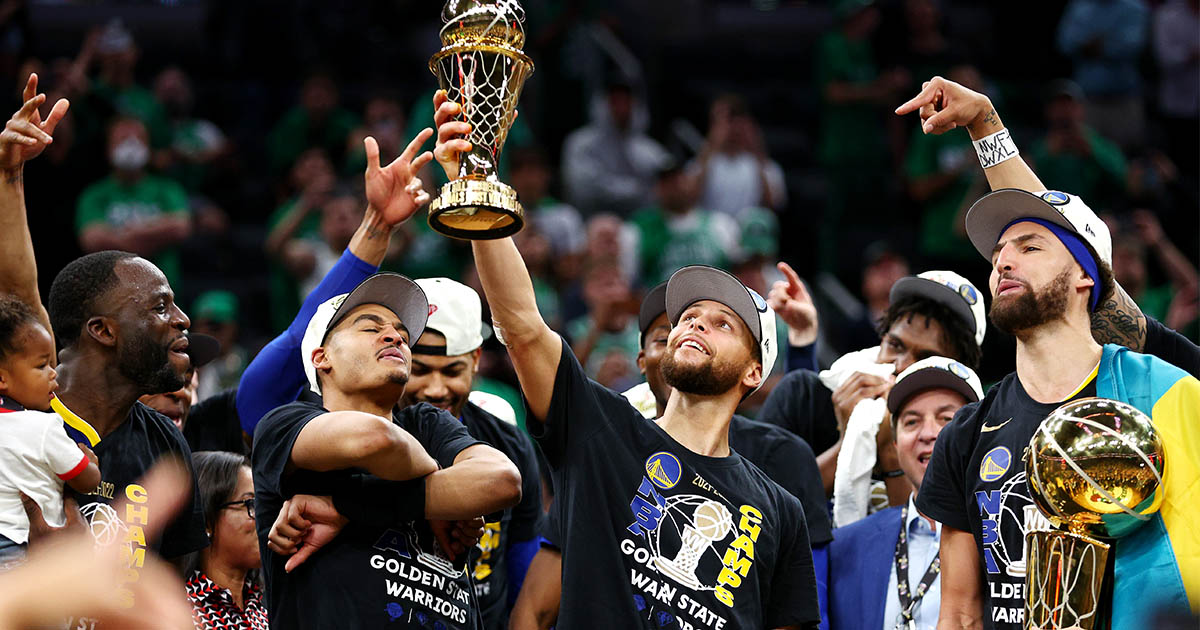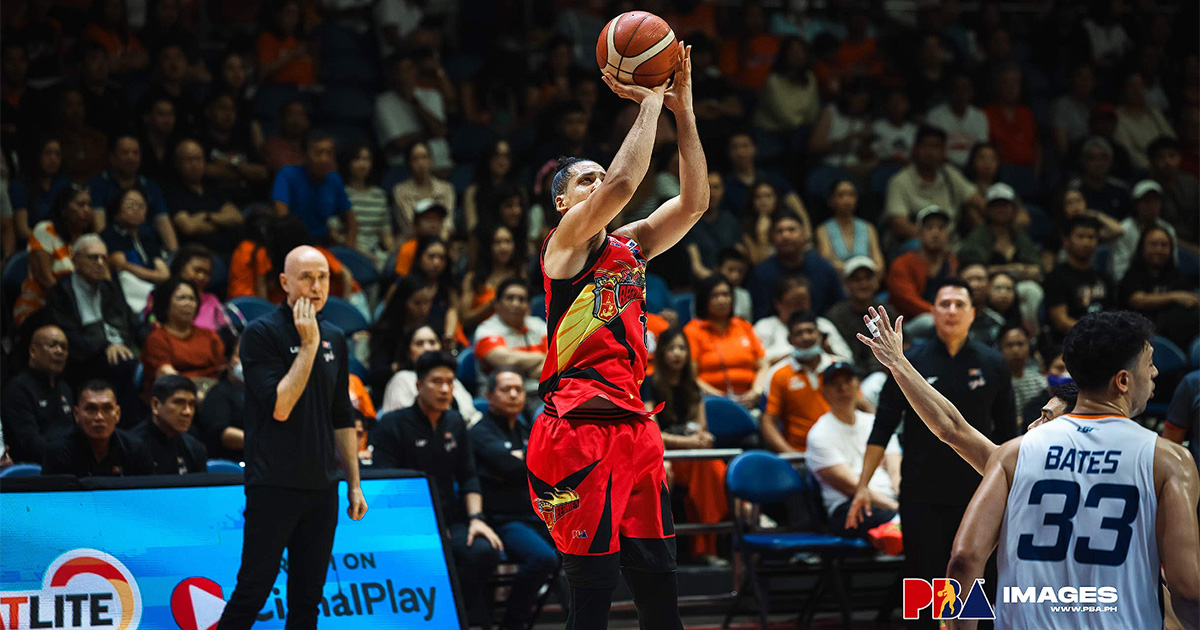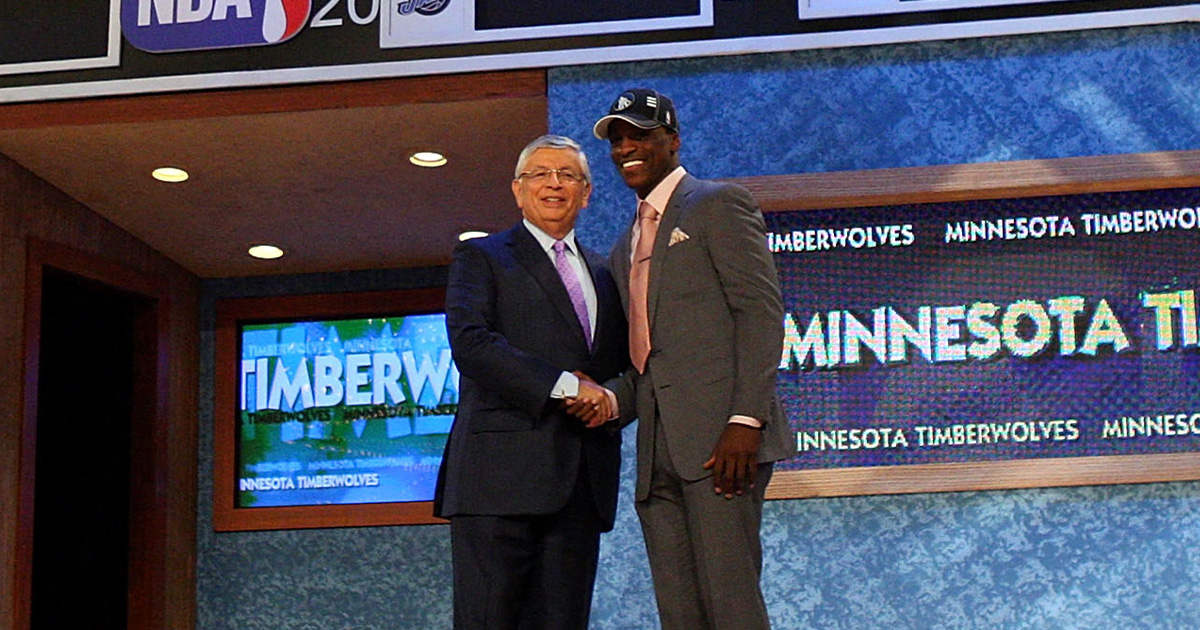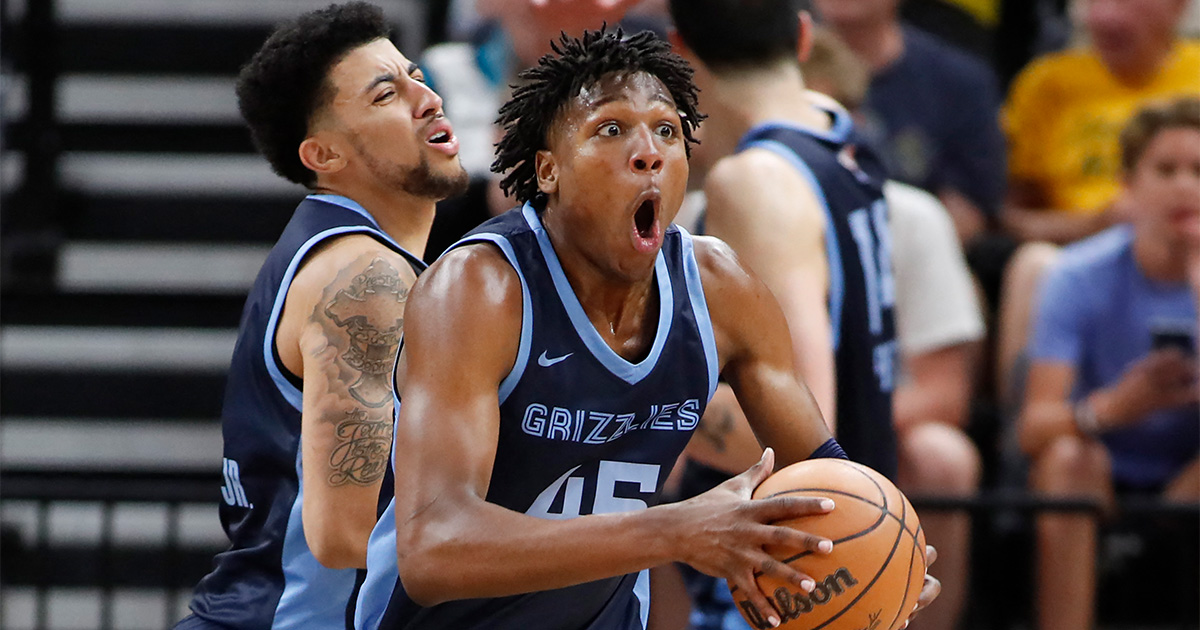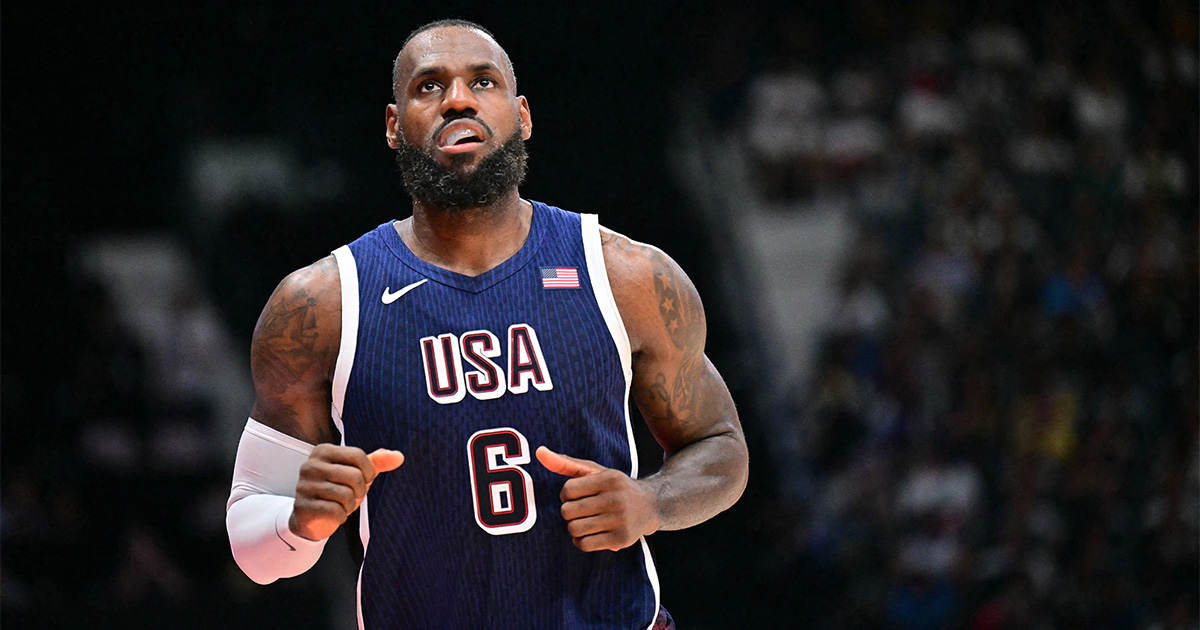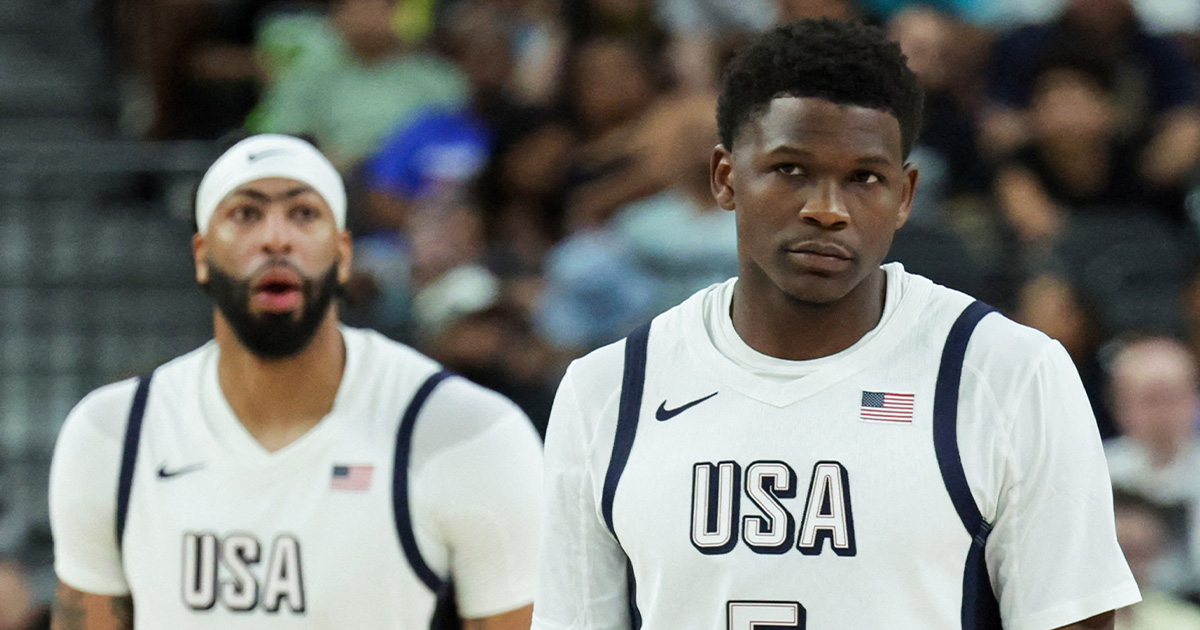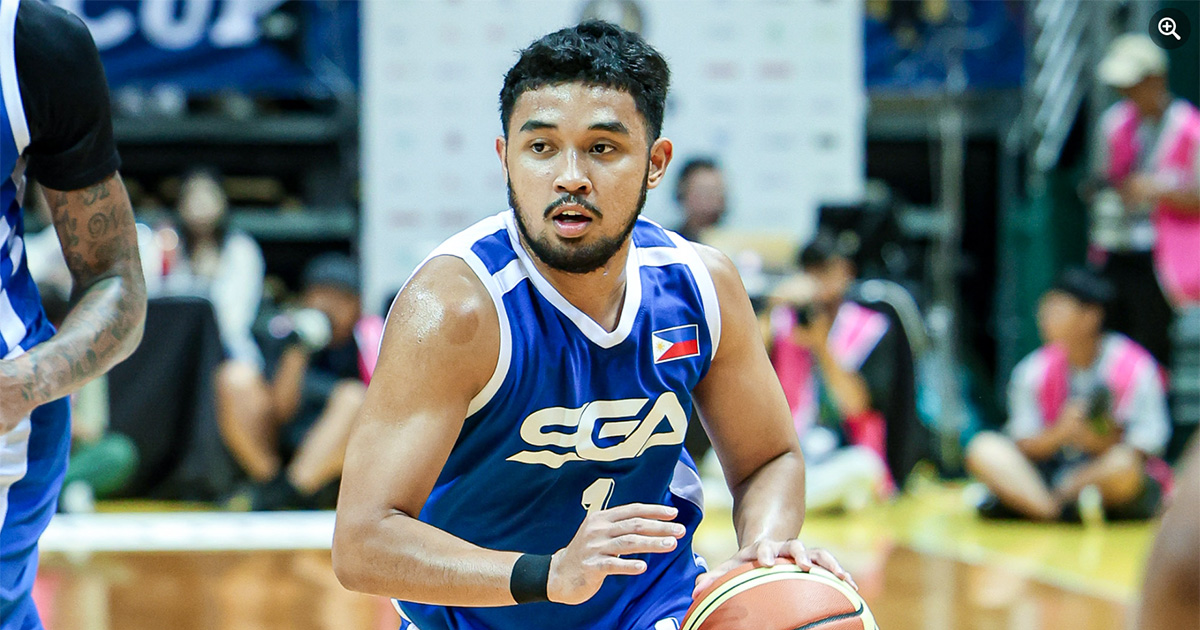Since the Golden State Warriors picked him seventh overall in the 2009 NBA Draft, Stephen Curry has embarked on one of the most unique journeys in the history of basketball – one that now has him up there in the conversation as one of the best to ever do it.
Curry’s trophy case is finally complete after he won his first NBA Finals Most Valuable Player award following Golden State’s 103-90 win over the Boston Celtics in Game 6 of the 2022 NBA Finals. He had 34 points, six threes, seven rebounds, seven assists, two steals, and one block in the closer which capped off a brilliant series where he often single-handedly willed his team to victory.
While he did not have to win the NBA Finals MVP to validate his place in NBA lore, it was the only argument remaining that pundits could somewhat credibly hold against him. Now, with his fourth NBA title under his belt and the three new pieces of individual hardware that he picked up in the first half of 2022, Curry’s resume is definitely a historic one.
In addition to his long-awaited NBA Finals MVP prize, he was also this year’s NBA All-Star Game Most Valuable Player and the first-ever NBA Western Conference Finals Most Valuable Player. Furthermore, he is a two-time NBA Most Valuable Player, eight-time NBA All-Star, has eight All-NBA selections, and a member of the NBA 75th Anniversary Team.
This unquestionably puts him up there with the greatest players to have picked up a basketball and he is neck-and-neck with the legendary Magic Johnson in the “Best Point Guard of All Time” conversation.

Curry’s achievements are already awe-inspiring on their own, though they are even more impressive when considering what the narrative around him was when he was first drafted 13 years ago.
As a scrawny 6’2 guard coming out of Davidson, there was considerable apprehension that he could become an impactful NBA player. He quickly put those doubts to rest in his rookie year where his per-game averages of 17.5 points, 4.5 rebounds, 5.9 assists, and 1.9 steals earned him a spot on the 2010 NBA All Rookie Team.
However, the focus of his critics then shifted to his durability after he missed almost two thirds of the lockout-shortened 66-game 2012 NBA season, his third in the league, with ankle and foot injuries that required surgery. These concerns allowed the Warriors to sign him to a four-year, $44 million extension in the following offseason that was well below his market value even back then.
That contract turned out to be one of the biggest bargains to date as Curry bounced back strong in the 2012-2013 season, appearing in 78 contests and averaging over 20 points per game for the first time in his career. He also made his first playoff appearance that year and made it all the way to the second round in his maiden postseason tour.
Unfortunately, the shine of that playoff debut quickly lost its luster in the next campaign. Curry was named to his first of what would become six consecutive NBA All-Star teams, but Golden State was eliminated in a highly competitive seven-game first round series with the Los Angeles Clippers.
Although Curry had matured into a bona fide NBA All-Star, the questions now shifted to whether a team could make a deep postseason run by relying on a jump-shooting point guard. It had not yet been done in the league at that point in time as the prior champion teams were always led by a dominant big man or athletic wing which gave his naysayers genuine grounds for their argument.
Curry’s fortunes quickly took a turn for the better in the 2014 offseason when Mark Jackson was replaced by Steve Kerr as the Warriors’ head coach. Once a jump shooting point guard himself, Kerr won three NBA championships with the Chicago Bulls and two more as a San Antonio Spurs where he was a key back-up playing alongside all-time icons.
It turned out that Curry and Kerr were kindred spirits as Golden State quickly took off under their new head coach and won the NBA title in his first season with the franchise. Despite Curry averaging a team-high 26 points plus 5.2 rebounds, 6.3 assists, and 1.8 steals in six games, his teammate Andre Iguodala was deservedly named the NBA Finals MVP that year for his defensive efforts on LeBron James.
That gave Curry’s detractors one last island to stand on and it was further compounded when the transient Kevin Durant won the NBA Finals MVP in their next two championships in 2017 and 2018. Then, after injuries derailed their quest for the title in 2019 and led to two consecutive dismal seasons, it seemed as if Curry would not have his chance to fill the only remaining major hole on his Basketball Reference page.
Those down years make this year’s championship run even sweeter and further solidifies the 33-year-old guard’s place among the game’s legends. What is even more exciting for Warriors fans is that Curry’s game has aged gracefully as expected and he should continue playing at this dominant level for many years to come. He has persistently responded to those denouncing him with resilience and it has helped the Warriors to find their way back to top of the league.
Golden State has sent a resounding message to everyone that their winning ways are still far from over and while those who disparage Curry may find something new to nitpick on, it is certain that this living legend will be ready to silence them once again.

